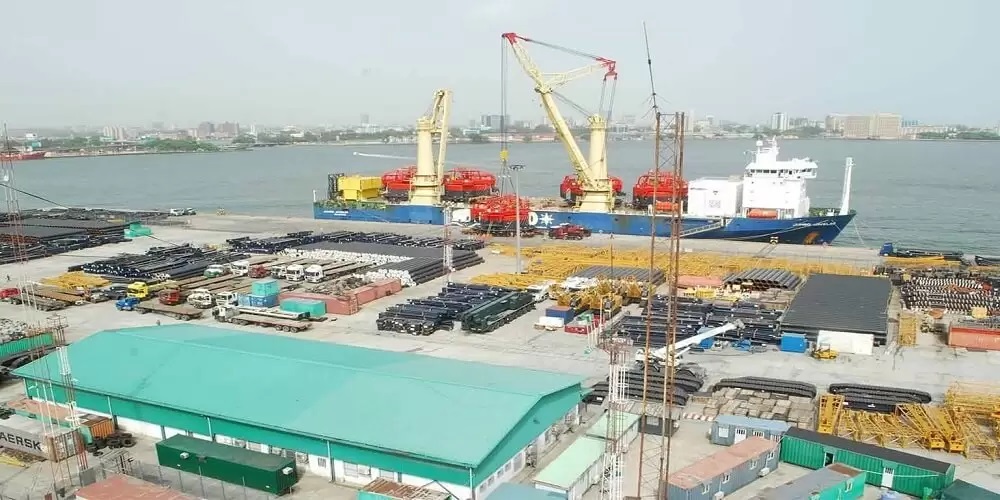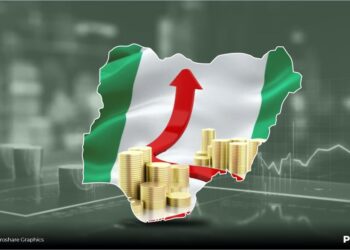It is globally accepted that meaningful national socio-economic development is hinged among others on the ability of governments to provide enabling environments for the private sector to thrive, particularly in free market economies like Nigeria.
Such enabling environments are aimed at stimulating increased local and foreign direct investment in manufacturing, innovations, competitiveness and other market driven economic activities to engender increase in capacity utilisation by existing industries, generate new job opportunities, create more wealth, and promote citizen welfare, thus alleviating poverty.
Through policy initiatives, incentives, robust regulatory regimes supporting consumer and environmental protection among others, governments are deliberate in the efforts to provide enabling environments for the private sector
Some of the initiatives in Nigeria were the creation of Special Economic Zones (SEZs) popularly called Free Trade Zones, which are critical components of contemporary economic strategy, particularly for nations seeking to enhance their competitiveness in the global market. SEZs are designated geographic regions within a country that operate under different economic regulations than the rest of the country, aiming to attract foreign direct investment (FDI), promote manufacturing, and encourage exports. These zones often benefit from tax incentives, streamlined regulations, and infrastructural support, making them appealing for businesses looking to establish operations in emerging markets like Nigeria.
In the Nigerian context, there has been concerted effort to develop FTZs as part of a broader strategy to diversify the economy, reduce dependency on oil revenues, and encourage sustainable development.
Many countries have successfully leveraged these mechanisms to foster economic growth, attract investments, and create jobs. The government has initiated policies aimed at facilitating the establishment of these economic zones, positioning Nigeria as a competitive player in the African and international markets.
Tax Incentives Offered In Nigerian FTZs
Nigeria has established several FTZs as part of its economic strategy to attract foreign investment and stimulate local businesses. One of the principal attractions of these FTZs is the range of tax incentives provided by the government to businesses operating within their confines. These incentives are designed to create an enabling environment for investment, while simultaneously fostering economic development and job creation.
One of the most significant incentives is the corporate tax holiday available to eligible enterprises. Under this policy, companies can enjoy complete exemptions from corporate income tax for a period, usually ranging from three to five years, and potentially extendable based on performance and compliance with specific conditions. This feature significantly enhances the cash flow of businesses, allowing them to reinvest profits into growth and expansion efforts.
Moreover, duty exemptions on imported goods are another attractive incentive. Businesses operating within FTZs can import raw materials and equipment without incurring customs duties. This not only reduces operating costs but also encourages companies to source high-quality inputs from abroad without the financial burden of tariffs. Alongside this, the government offers value-added tax (VAT) waivers, which remove VAT on goods and services consumed within these economic zones, further easing financial pressures on businesses.
In addition to these direct financial incentives, the Nigerian government has also introduced various other incentives aimed at boosting investment in FTZs. These can include reduced utility costs, grants for setting up businesses, and supportive regulatory frameworks that streamline operations. Collectively, these incentives are designed to make Nigerian FTZs an attractive option for both domestic and international investors, ultimately contributing to the country’s economic growth and diversification goals.Other Incentives Available To Businesses In Free Trade Zones
There are primary benefits of locating a business in an FTZ. Some of these benefits are:
Duty Deferral – Import duties for imports shipped to an FTZ are deferred until the time those products leave the FTZ and enter the countries’ commerce.
Duty Exemption – Import duties are exempted for imports entering an FTZ and later exported without ever entering countries’ commerce or destroyed within the FTZ.
Duty Reduction (Inverted Tariff) – Importers who import raw materials and conduct manufacturing operations in an FTZ may elect to pay duties for imported raw material based on the duty rate of the manufactured item (when the duty rate for the item is lower than the raw material duty rate) at the time the manufactured product leaves the zone and enters countries’ commerce.
However, enterprises in the Oil and Gas Free Zones are mandated to submit tax returns to the Free Zones Tax Administration Unit. There is the opportunity for interested businesses to have one-stop approvals for permits, operating licenses, and incorporation papers. There’s also rent-free land during the first 6 months of construction (for government-owned zones).
Furthermore, SEZs facilitate easier access to local markets. By situating within these zones, foreign investors can rapidly tap into the large and growing Nigerian consumer base. SEZs often serve as logistical hubs that enable swift distribution channels, thus allowing businesses to meet local demand efficiently. This direct market access not only enhances the profitability of ventures but also positions investors favorably in a competitive economy.
Another key advantage is the improved infrastructure that SEZs provide. These zones often come with state-of-the-art facilities, including transportation networks, utilities, and telecommunication systems, which are crucial for efficient business operations. The Nigerian government has made substantial investments to ensure that the infrastructure in SEZs meets international standards. Consequently, foreign investors benefit from a reliable and conducive environment for conducting business activities.
Challenges Of Managing Free Trade Zones In Nigeria
As globalisation continues to define economic progress of nations and the relevance of FTZs continues to grow, so do the challenges relating to assuring standards, effective regulatory oversight and achievement of the objectives for which the zones were created.
However, the standards, oversight, and regulations governing FTZs have not kept pace with these developments. As a result, illicit actors sometimes take undue advantage of the Government incentives thus defeating the noble objectives of setting up the zones. The result of these activities can be likened to economic sabotage.
Stakeholders at different forums have expressed concerns on the activities of some operators in the FTZs infringing on the movement of goods and sometimes raw materials from the zones to the customs territory, thus creating unfair competition with similar businesses in the latter. Other concerns raised include gross under prizing of purported raw materials and semi processed products into the territory as well as the export into the customs territory without the required value addition which underscored the provision of the various incentives by the government.
Such activities deny the nation of due revenue and create economic imbalances while the perpetrators and their collaborators continue to smile to the banks.
The FTZs Dilemma
The policy initiative for the establishment of FTZs and the above listed incentives are deliberate efforts by successive administrations in Nigeria to provide enabling environment for businesses to thrive, more so that majority of those cited within the FTZs, whether private or government owned are from the private sector.
While the President Tinubu-led federal government has placed premium attention to plugging financial leakages leading to significant and unprecedented improvement in the nation’s income, there have been serious concerns raised by stakeholders on the activities of some operators in the FTZs.
Such concerns include taking undue advantage of the incentives provided by the government while working against the realisation of the noble objectives of setting up the zones in the first instance. Exploitation of exemption from taxes and rates and crass criminality in some cases. These activities can range from trading in unapproved items, inadequate and under disclosure of trade volumes of approved products, under invoicing, use of wrong description and HS codes, trading with related entities in the customs territory without full or any disclosure, to using the FTZs as conduit for trading of imported raw materials and goods without any value addition.
Trading in unapproved items is fraudulent and criminal, inadequate and under disclosure of trade volumes, under invoicing and use of wrong description and HS codes rub the Nation of valuable income while also playing regulators against each other. Trading with related entities in the customs territory without disclosure aids under invoicing and promotes trading in raw materials without the necessary value addition as required for operators in the FTZs.
Vivid examples of these untoward activities can be drawn from the result of discreet investigations conducted at the Ogun and Calabar Free Trade Zones in the last few months on the steel sector. While international market price of wire rods obtained from World Steel news was about $480 per metric ton, an FTZ operator in Calabar imported 6, 027 metric tons valued at $67, 250 which implies a ridiculous FOB price of $11 per metric ton.
Such gross under valuation and under declaration of import volume denies the nation of correct import duties collection, creates price distortions in the market and the attendant danger posed to competitors in the customs territory. All these negative consequences of exploiting government’s incentives for FTZs cannot but be tagged economic sabotage.
There was also the case of importation of 3000 metric tons of steel coil for the production of steel sheet and 4,000 metric tons of galvanised steel coils for the production of roofing sheets by an operator at the Ogun FTZ from which a supposed 2000 metric tons of waste/scrap was generated and exported to a related entity about the same time by the operator. A production process that generates so much as 2000 metric tons of waste/scrap from 7,000mt of steel coils is unheard of and seems impossible.
This case suggests importation of supposed raw materials with all the incentives offered by government and export of same as waste/scrap to a related entity also enjoying available incentives including monetary, tax and legal provisions with the aim among others of paying import duty only on 5,000 mt.
What Next?
The relevant ministries and agencies of government with responsibility for oversight on the FTZs need to ensure that regulations relating to imports from other parts of the globe to Nigeria also apply to imports from the FTZs to the Nigerian Customs territory e.g., the Standards Organisation of Nigeria Offshore Conformity Assessment programme (SONCAP).
There’s need to apply regulations that relate to financial crime preventive measures such as reporting large value currency transactions and, in some cases, suspicious transaction reports (STRs) as they relate to financial institutions and businesses operating in the zones.
It is also essential to put in place mechanisms for stricter monitoring of the use of raw materials imported into FTZs, the attendant value addition and export of the final products as well as waste/scrap.
The Nigerian government under President Bola Ahmed Tinubu, need to extend its reforms to the operations within the FTZs especially focusing on plugging income leakages and taking negative advantage of the government’s incentives.
Perching Hawk writes from Lagos





